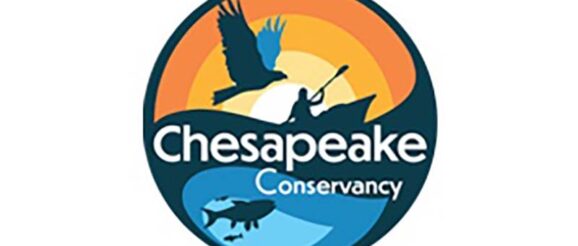Conservation Innovation Center Turns Ten – Eye On Annapolis

Chesapeake Conservancy’s Conservation Innovation Center (CIC) turns 10 this year. Established in 2013 with two staff members, the CIC currently has 13 employees helping to change how conservation is done, using cutting-edge technology to empower data-driven conservation and restoration success. Through local, regional and national partnerships, the CIC makes data accessible for conservation professionals to practice precision conservation, which means using data to look at the right restoration and conservation practices in the right places at the right times. With such precision, conservationists yield greater impact with fewer resources.
“The idea for the CIC was developed and nurtured by former Chesapeake Conservancy Board Member Stephen Harper, who, after working for Intel for nearly 15 years, decided to take a conservation sabbatical at Chesapeake Conservancy,” said Chesapeake Conservancy President & CEO Joel Dunn. “Today, the CIC is empowering others to work smarter, not harder, through the latest technology. Just as the use of technology changed the corporate world to make it more efficient, technology is changing the conservation movement.”
“What gives me great hope for the conservation of our planet and the idea of saving 30% or 50% of the globe to protect biodiversity is seeing organizations like Chesapeake Conservancy’s Conservation Innovation Center democratizing data and taking information to action and making things happen,” said Esri President Jack Dangermond.
“Looking back over the last 10 years, I am so proud of our team, past and present, who have done such incredible work. In addition to creating high-resolution land use/land cover data and harnessing the power of machine learning for conservation, our conservation technology team has helped empower major conservation achievements,” said Dunn.
“Most recently, the Conservation Innovation Center created a deep learning model that automatically maps ground-mounted solar arrays in satellite imagery. As solar power grows rapidly in the Chesapeake Bay watershed, this new map finally answered where. Our data scientists also developed a deep learning model for mapping wetland presence, which currently operates with 94% accuracy in select regions. Currently, we are working in partnership with researchers to create detailed and accurate maps of previously under-mapped streams throughout the Chesapeake watershed using LiDAR data and novel terrain interpretation techniques,” continued Dunn.
Have a look back at a “Top Ten” of CIC’s accomplishments for the 10th! (*in no particular order):
1. Founded in 2013 with an initial project funded by a grant from Intel and the Digital Energy and Sustainability Solutions Campaign
2. Created 60+ web applications and online tools to assist local and regional conservation and restoration partners
3. Supported 10+ land trusts and conservation collaboratives in their land conservation efforts through customized prioritization tools, analyses and maps
4. Empowered the passage of Maryland Forest Conservation bills through high-resolution tree canopy analyses
5. Guided optimal solar implementation for 14 counties through landscape analysis with an emphasis on conservation/restoration criteria
6. Provided the first openly available high-resolution change data for both land cover and land use for the Chesapeake (2022)
7. Hired two data scientists specializing in machine learning with funding from the Grayce B. Kerr Fund Inc. (2019, 2022)
8. Sent keynote speakers to Esri’s International User Conference (2016) and is featured in Microsoft video (2017) and Wired magazine (2018)
9. Is subject of Harvard Business School case study (2020)
10. Produced Chesapeake Bay High-Resolution Land Use/Land Cover Database released by EPA’s Chesapeake Bay Program (2016)
Chesapeake Conservancy recently hosted a webinar explaining the work of CIC, available to view at bit.ly/2023CICwebinar.
